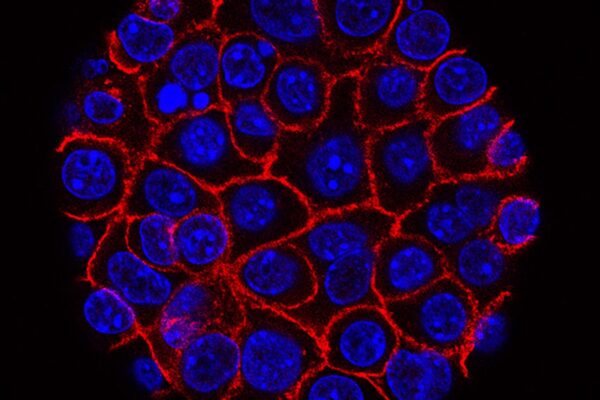
Cancer immunotherapy developer Elicio Therapeutics is finally getting a listing on the public markets to finance its clinical research. But rather than the traditional IPO it had been seeking, the biotech is going public via a reverse merger with ailing Angion Biomedica.
Under terms of the merger deal announced Tuesday, Elicio shareholders will own about 65.5% of the combined company, which will operate under the Elicio name. The deal comes as Elicio continues clinical development of lead program ELI-002, which is in development for treating cancers characterized by the difficult-to-target mutation called KRAS. A Phase 1 dose-escalation study has completed enrollment at the final dose level. Boston-based Elicio expects to begin an additional Phase 1/b2 trial in the second half of this year.
Elicio develops drugs using proprietary technology that delivers immunotherapies to the lymph nodes, which contain large numbers of immune cells. By applying this technology to therapies that aren’t predisposed to getting into the lymph nodes, the company believes it can enhance their uptake by these organs and their action on important immune cells. This technology platform, which comes from the Massachusetts Institute of Technology, was used to develop ELI-002. This experimental cancer vaccine is intended to generate an immune response to KRAS peptide antigens modified by Elicio’s technology. ELI-002 also includes an adjuvant to boost the immune response. This adjuvant has been developed with the company’s proprietary technology.
Elicio initially filed to go public in 2021 as it looked ahead to clinical testing of ELI-002. The clinical trial began, but the IPO never happened. The Phase 1/2 study is evaluating the Elicio cancer vaccine in patients with solid tumors, including colorectal cancer and pancreatic ductal adenocarcinoma. According to Elicio’s regulatory filings, the study is designed to target patients with minimal residual disease, a stage where the number of tumors and the immunosuppressive effects within the tumors are reduced. Last September, Elicio notified the Securities and Exchange Commission that it was withdrawing its IPO paperwork, but leaving the door open to an IPO possibility. The company chose a reverse merger instead.
“We believe this merger reflects the strength of the ELI-002 program, our pipeline, and the value-creating potential of our lymph node-targeting approach to treating cancer and other diseases by engaging lymph nodes, the ‘schoolhouse’ of the immune system,” Elicio CEO Robert Connelly said in a prepared statement.
The kidneys were the focus for Angion. Lead program ANG-3777 was in development for treating acute kidney injury. However, Phase 3 testing yielded results that the company concluded would not support approval in kidney transplant patients at risk for delayed graft function. After a separate Phase 2 test in acute kidney injury associated with cardiopulmonary bypass surgery, the company concluded the data would not support advancing to Phase 3 testing. Last January, Angion laid off nearly half of its workforce. In July, the company announced it would explore strategic options that include a merger, reverse merger, or sale of its assets.

A Deep-dive Into Specialty Pharma
A specialty drug is a class of prescription medications used to treat complex, chronic or rare medical conditions. Although this classification was originally intended to define the treatment of rare, also termed “orphan” diseases, affecting fewer than 200,000 people in the US, more recently, specialty drugs have emerged as the cornerstone of treatment for chronic and complex diseases such as cancer, autoimmune conditions, diabetes, hepatitis C, and HIV/AIDS.
With the execution of the merger agreement, Angion committed up to $10 million in a bridge loan to Elicio. The combined company will be led by Elicio’s management team and Elicio will remain headquartered in Boston. Angion President and CEO Jay Venkatesan will have a seat on the combined company’s board of directors. The boards of both companies have approved the merger, which is expected to close in the second quarter of this year. When it does, the new Elicio expects to trade on the Nasdaq under the stock symbol “ELTX.”
Public domain image by the National Cancer Institute













